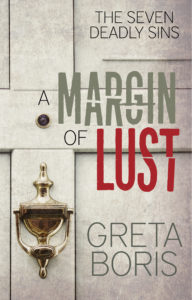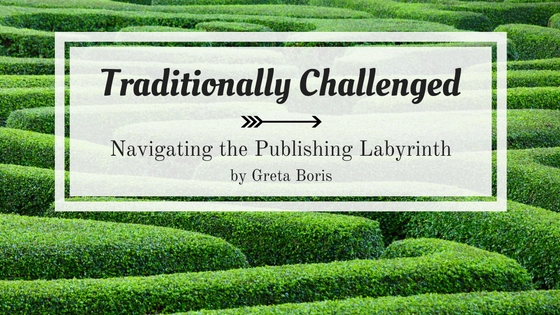by Greta Boris
One question I routinely get from aspiring authors is: How do I tempt an agent to take me on as a client?
Unfortunately, the answer is more like a love story than a how-to manual. There’s a certain magic, an undefinable spark that ignites between writer and agent when a match is made.
That’s not what you want to hear. You want specifics. Tips and tricks to make yourself more alluring. So I asked.
This past weekend I taught at the Southern California Writers Conference in San Diego. While I was there, I interviewed three agents who attended: Jennifer Herrera of David Black Agency, Kaitlyn Johnson of Corvisiero Literary, and Damian McNicholl with Jennifer De Chiara Literary. They were all charming and intelligent, and distinctly different.
The questions I asked each were:
- How much more likely are you to read and respond to a warm query (a referral or someone you’ve met) than a cold one?
- Once you do open a query, what tempts you to finish reading it?
- What kinds of things tempt you to ask for more chapters or a full manuscript?
- What shuts down your interest—complete turn-offs?
- What seals the deal? What makes you decide to take on an author?
Let’s take these one by one.
Question 1: How much more likely are you to read and respond to a warm query (a referral or someone you’ve met) than a cold one?
Each of these agents receives between 50 and 80 queries a week and agree, warm queries go to the top of the pile. They are read first and more closely. But the fact that the person was referred by a friend or client doesn’t influence Damian McNicholl’s decision to take the next step. The project must stand on its own merits.
Kaitlyn Johnson and Jennifer Herrera said they gave warm queries a little more love than cold ones. Even if they aren’t interested in the project, they are more apt to send a personal note explaining why.
Tip: Warm queries can save you years of wasted frustration. There’s nothing more discouraging than receiving rejection form letter after rejection form letter. It leaves writers scratching their heads. Should they push on, give up, or take a writing class? My suggestion is to go to conferences, sign up for advanced submission programs, ask author friends for agent referrals, participate in on-line pitch forums, do what it takes to heat up your query.
Question 2: Once you do open a query, what tempts you to finish reading it?
All agreed it must be clean, well-written, and compelling, but that’s where the similarity ended.
What grabs Jennifer Herrera is comp titles. She wants to know the writer reads, knows their genre well, and has taken the time to find out what she’s looking for.
For Kaitlyn Johnson, it’s all about voice. She likes to see a strong hook and interesting plot points, but if the writer’s voice doesn’t grab her, she’s not going to ask to see more.
Damian McNicholl has a strong social conscience. He’s attracted to works that carry a message he feels the world needs to hear.
Tip: Do your research before you pitch. If you like long walks on the beach at sunset, and they prefer snow-capped mountain ski trips, it’s not going to be a match. If you have no idea what an agent is looking for, or worse you don’t care, you appear unprofessional and thoughtless.
Question 3: What kinds of things tempt you to ask for more chapters or a full manuscript?
Kaitlyn Johnson is also an editor, and she thinks like one. She focuses on three-dimensional characters with clearly defined motivations, and conflict. Those first few pages have to hook her, pique her curiosity, make her want more.
Damian McNicholl is an award-winning literary author in his own right. His standards are high. For him, the synopsis must read like a well-written dust jacket. It must show the writer understands both the message of the work and its audience.
Jennifer Herrera has a lyrical ear. The sound, the cadence, of the writing must sing to her.
Tip: Don’t rush to the query process. Writing is an art, and like any skill, it takes time, humility, time, practice, time, education, and time.
Question 4: What shuts down your interest—complete turn-offs?
Jennifer Herrera, “Creepy people with no respect for personal space.”
Kaitlyn Johnson, “People who won’t take critique without an argument.”
Damian McNicholl, “Pushy, egotistical people.”
Tip: The life of a literary agent isn’t an easy one. They’re forced to say no to hundreds of people every month. Not because they’re not compassionate souls, but because there’s only so much of them to go around. If you want to burn a bridge, be sure they’ll never look at a future project, be one of the above.
Question 5: What seals the deal? What makes you decide to take on an author?
It may seem an agent’s life is like the star’s of The Bachelor. Their role is to disappoint a parade of hopeful suitors, leave them broken and in tears. That’s the wrong perspective. When making the decision to pick up a writer, each said their highest priority is that writer.
Damian McNicholl represents a lot of nonfiction. His first book, A Son Called Gabriel, was based on historical events. However, he’s found that if the subject matter of a book isn’t contemporary, or relevant to today’s audiences, he can’t sell it no matter how well done it is.
Kaitlyn Johnson is looking for a long-term relationship, not one-night stands. She wants to know the author is working on their next book while shopping their finished manuscript. She’s not on the market for one-hit wonders.
For Jennifer Herrera, it all goes back to the comp titles. She’s a pro at what she handles, but like any pro, she knows her limitations. If she doesn’t believe she’s the best one for the job, she’s not going to do you the disservice of signing you.
Tip: If an agent rejects your project, they’re not rejecting you as a person or as a writer. It’s simply not a match. If you can get their feedback, take it to heart and make the emotional or professional adjustments you think necessary. Sometimes your work would fit better with a smaller press open to author submissions. Sometimes you’re better off independently publishing. Sometimes you just need to find a different agent. Here are a few more thoughts on making a publishing match.
If you want to tempt an agent, before hitting send on that query letter do all you can to make a good impression. You wouldn’t go on a first date without a little primping and polishing. I understand we want to be loved for who we are, pimples and all. But that’s your mother’s job, not an agent’s.
Make sure your slip isn’t showing. Here’s a checklist:
- Have a completed, beta-tested, polished manuscript. If someone wants to see the entire thing, you want to strike while the iron is hot, before they’ve forgotten all about you.
- Have a well-written synopsis done in several lengths. Different agents require different things, so have them ready.
- Study up on how to write a query letter. After you’ve given it your best shot, get feedback from writers who are published.
- Research comparative titles, so you can include them in your query. I worried about this when I was sending out letters. I didn’t want agents or acquisition editors to think I was putting myself into the same category as the best-selling, award-winning authors I emulated. If you word it correctly, they’ll know what you mean, and it gives them a quick reference to know if your book is the type they handle.
- Keep a spreadsheet of who you pitched, the date, and expected response time. There is a downloadable spreadsheet in the pro-author packet on the Aspiring to Author website. It’s beyond embarrassing to query the same agent with the same material after they’ve rejected it.
- Follow the instructions on the agency’s website to the letter. Follow the instructions on the agency’s website to the letter. Follow the instructions on the agency’s website to the letter. Follow the instructions on the agency’s website to the letter. Have I made my point?
Breathe deep. Hit send.
***

Greta Boris Director
Greta Boris is the author of the 2017 releases, A Margin of Lust andThe Scent of Wrath, the first two books in her 7 Deadly Sins domestic suspense series. Her nonfiction work includes the Amazon Bestseller The Wine and Chocolate Workout – Sip, Savor, and Strengthen for a Healthier Life and Aspiring to Author – A Guide for Your Publishing Career. She’s also the Director of O.C. Writers, a community of over 900 published and aspiring authors in Orange County, California.
You can visit her at http://gretaboris.com. She describes her work (and her life) as an O.C. housewife meets Dante’s Inferno.




Great interview questions, Greta, producing very useful information and tips! It’s interesting how different the three agents’ answers were. That’s important to remember, that there’s no one thing that all agents are looking for. And who knows, even after many rejections, maybe the next agent is the one looking for this specific book!
Exactly. You only need one agent, at least at a time. It will take time to find the perfect match.
You’re not only a talented, published fiction and no-fiction author, you are a journalist, Great agent interviews. Very helpful and encouraging. My novel is in the 5th draft, soon to be finished.
Gee, thanks 🙂 High praise. Looking forward to reading the pages you sent me.
Great tips, Greta – another page to bookmark (Hope it’s still on the website by the time I’m ready to take that leap.)
Like Joy, I also found it fascinating to hear how the agents differed, especially in what grabbed their attention. I became a little worried when I read that the part about being contemporary. I understand that that probably refers to non-fiction; however, it made me think that if I were to try a query letter, I’d have to somehow relate how the angst and activism of the Vietnam era is connected to today’s youth.
Thanks for this piece – an excellent guide!
Glad to be of service. Now finish that book, Billie!
What a nice oppportunity to personally speak to these agents. Getting the inside scoop is valuable. Thanks for the information!
It was a lot of fun talking to an agent I wasn’t trying to impress 🙂
The first time I met with an agent, I was a true newbie to the whole publishing thing. I’d gotten a recommendation from my writing mentor and had a one-on-one at a writing conference with an agent who had worked with some Stephen King-related non-fiction works, which was what mine was. Well, I relied on that recommendation instead of doing my homework, and when the agent asked me what value my book had for readers, I was stymied. I didn’t know what to say because I hadn’t really prepared.
I’ve never forgotten that feeling of shame and stupidity, and this article just reinforces that you have to do your homework. It’s not just about the writing, it’s also about the BUSINESS of writing.
Great article, Greta!
I almost hyperventilated the first time I met with an agent. It was an excruciating experience I’d rather not relive here. Thanks for sharing your first horror story 🙂 And, you’re so right. Writing is a business, unless it isn’t. Nothing wrong with that, but best not to confuse the two.
Good article, great questions, Greta! This one goes in my Keep file.
So glad it was helpful, Debra.